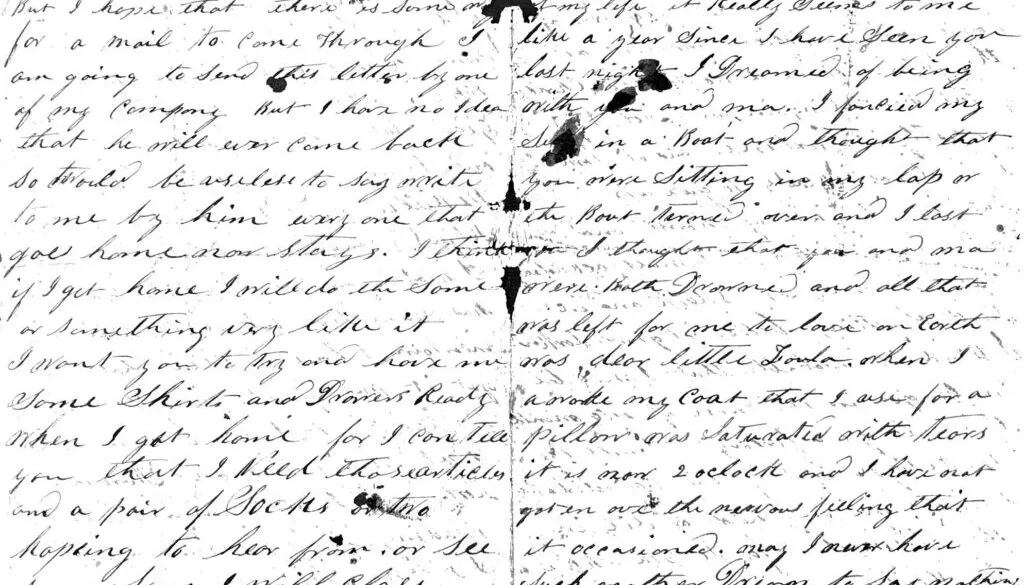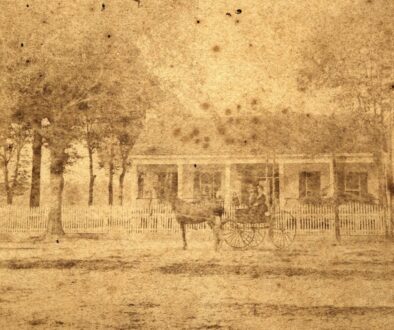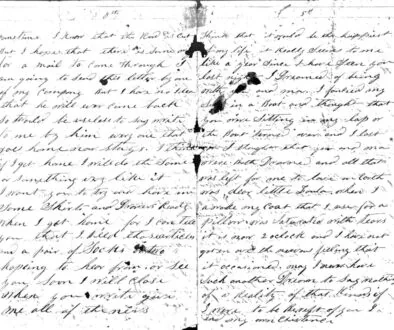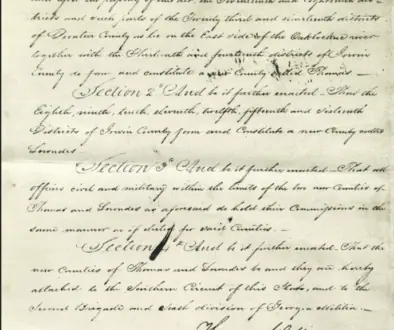“Another bad day”: The Diary of Henrietta Eugenia Vickers Armstrong
What must it have been like to live in Thomasville at the brink of the Civil War? Here at the History Center we have the transcript of a diary written by a young woman over the year of 1861. This diary not only gives us insight into this question but also paints a vivid picture of life in South Georgia and how it was about to drastically change. Follow along as we explore the world from Henrietta Armstrong’s point of view in this blog series!
_______________________________________________________________________________
Introduction
Henrietta Eugenia Vickers Armstrong (1843-1912) was born in Thomasville, the third youngest of four children born to James M. (1810-1849) and Anna E. Miller Vickers Sr. (1821-1905). By the time of writing her diary, Henrietta had already known the pains of loss: her older sister died right before her birth, her father died when she was six, and her baby brother, James Jr., died when she was 15 after he drowned in the Ochlocknee River.
Despite these hardships, there were good times too: in 1850 her mother remarried and had another son just a few years later. In 1858 Henrietta married Aneas Armstrong, a member of the United States Navy and plantation owner. At the age of seventeen, she was in charge of overseeing the family home: a job which included nursing, clothing, and directing the work of sixty-seven enslaved laborers. Within a few weeks of beginning her diary, Henrietta’s older brother had his first child, a daughter he named Henrietta Eugenia after his sister.
On the note of family, Henrietta had an extensive extended family made up of several VIPs of the time period. Her father’s first wife was Mary Polly Jones Tooke, the mother of Henry Harlowe Tooke (a seasoned clerk in the Thomas County court) and Frances Amanda Tooke (the wife of James Lindsey Seward, a member of the United States House of Representatives before the Civil War and member of the Georgia Senate.) Henrietta’s brother, Pleasant Nixon Vickers, was married to Ann Ponder Theus whose mother was part of the Ponder family. They are known in Thomas County for the Ephraim Ponder House (her uncle’s home) on Dawson Street and their enslavement of the Flipper family, including Henry Ossian Flipper.
Through her husband, Henrietta was connected to the Armstrong family of Bibb County which included his father, a plantation owner and Major General, and Aneas’s eleven brothers and sisters. Several of his brothers became high-ranking naval officers for the Confederacy. One of his sisters married the Florida Secretary of State, Frederick L. Villapigue, who was instrumental in orchestrating Florida’s secession from the Union. Henrietta’s family was well-connected within Georgia and Florida society and government, affording her family many opportunities that were not available to the average citizen.
Unbeknownst to Henrietta, a dark period in American history, and her own life, was about to begin. On January 19th, the State of Georgia seceded from the Union. Several other Southern states followed, leading to the creation of the Confederate States of America and tipping off the American Civil War. A day after Georgia left the Union, Henrietta wrote in her diary:
“We are out of the ‘Union’ at last, thank God. I hope the abolitionists will suffer for what they have done.”
Unfortunately for Henrietta, her family would be swept up into the ensuing war with dire consequences for some members (but you’ll have to wait for another installment of this series to find out who!).
Over this year, we will follow along with Henrietta and the Vickers-Armstrong family as they dealt with the turn of events that marked 1861 as the start of the Civil War. Learn about her family, her daily life, and the ins-and-outs of being the wife of a plantation owner in Southwest Georgia. Despite how much life has changed in the 164 years between now and the time of Henrietta’s diary, many aspects may feel familiar to our own lives and give us a peek into the Thomas County she experienced.




